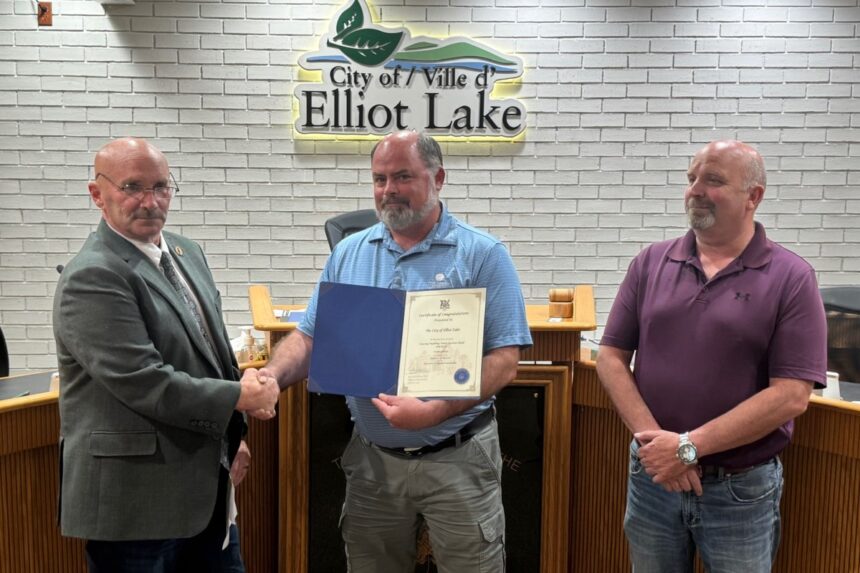I’ve spent the past three days in Elliot Lake speaking with residents about what might be the most significant injection of provincial dollars the community has seen in years. The mood here is cautiously optimistic as the city prepares to manage over $3 million in new infrastructure funding.
“We’ve been waiting for this kind of investment,” said Mayor William Elliott during our interview at city hall yesterday. “This funding addresses immediate community needs while setting foundations for future growth.”
The province announced three separate funding streams targeting food security, water infrastructure, and economic development – a triple focus that local officials say could transform the community’s trajectory after years of economic challenges.
The Northern Ontario Heritage Fund Corporation (NOHFC) has committed $1 million toward the expansion of the Elliot Lake Emergency Food Bank, a critical resource that served over 3,200 residents last year according to their annual report. The expansion will include cold storage facilities and additional warehouse space, nearly doubling their capacity.
Mary Jenkins, who has volunteered at the food bank for fifteen years, showed me around the current facility. “Some weeks we’re turning people away because we simply don’t have enough space to store donations,” she explained, pointing to cramped aisles between shelving units. “This expansion means we can help everyone who comes through that door.”
The investment arrives at a crucial moment. Food bank usage across Northern Ontario increased 32% over the past two years based on Feed Ontario statistics. The Elliot Lake facility specifically reported a 41% increase in new users since 2022.
Perhaps the most substantial portion of the funding package is dedicated to water infrastructure. The Ministry of Infrastructure has allocated $1.5 million to address aging water mains along Highway 108, a project that has been on the city’s infrastructure deficit list for nearly a decade.
“Those pipes are original from the 1950s when the mines were first developing the town,” explained Carl Matheson, Elliot Lake’s Director of Public Works. “We’ve had six major breaks along that stretch in the past eighteen months alone. Each one costs taxpayers around $25,000 to repair and causes service disruptions for hundreds of homes.”
The water system improvements will benefit approximately 2,700 residents in the city’s south end while creating an estimated 24 temporary construction jobs. Work is expected to begin by late August.
The third funding announcement might have the most long-term significance for the community of roughly 11,000. The province has committed $500,000 toward servicing the newly designated Elliot Lake Industrial Park near the former Algo Centre Mall site.
This project has been quietly developing for months, with city economic development officers working to attract businesses that could create permanent employment. Two manufacturing firms – whose names remain confidential due to ongoing negotiations – have reportedly expressed serious interest in establishing operations once the servicing is complete.
“We’re looking at potentially 35 to 50 new jobs within eighteen months,” said Councillor Ed Pearce, who chairs the economic development committee. “These would be stable, year-round positions that don’t rely on seasonal tourism.”
When I visited local coffee shops and the No Frills grocery store, resident reactions mixed enthusiasm with the pragmatism that characterizes many northern communities that have seen promises come and go.
“I’ll believe the jobs when I see the paycheques,” said Roger Belliveau, a retired miner I met at The Moose Cafe. “But the food bank expansion? That’s something real that helps people right now.”
The funding comes after what local officials describe as nearly two years of persistent advocacy. Mayor Elliott confirmed the city submitted detailed proposals through multiple provincial programs before securing these commitments.
“Northern communities often have to work twice as hard to get noticed,” he admitted. “We made our case based on both immediate need and long-term economic return.”
The Elliot Lake Chamber of Commerce estimates the combined economic impact could reach $7.5 million when accounting for secondary spending and business development. Chamber President Sarah Dickenson noted this represents the largest provincial investment package since the city’s post-mining transition funding in the early 2000s.
What makes this funding announcement particularly significant is its three-pronged approach. While infrastructure dollars typically focus on roads or buildings, this package addresses social welfare, essential services, and economic development simultaneously.
Regional economic analyst Thomas Keyes from Algoma University explained: “What we’re seeing is a more holistic approach to community development. The province appears to be recognizing that thriving communities need both social supports and economic opportunities.”
The timeline for implementation varies by project. The food bank expansion should be completed by year’s end, while the water infrastructure work will extend into mid-2025. The industrial park servicing represents the longest timeline, with completion estimated for late 2025.
As I prepared to leave Elliot Lake yesterday, I noticed a poster in the community center advertising an upcoming town hall where officials will outline project details and take questions. The genuine community interest was evident from the nearly full sign-up sheet.
For a city that has weathered significant economic challenges since the uranium mines closed decades ago, these investments represent more than dollars and infrastructure. They signal provincial recognition of the community’s continued relevance and potential for renewal.
Whether this funding package represents a turning point or merely a helpful boost remains to be seen. But for now, in coffee shops and council chambers alike, there’s a sense that Elliot Lake has secured an important victory in its ongoing effort to build a sustainable future.






